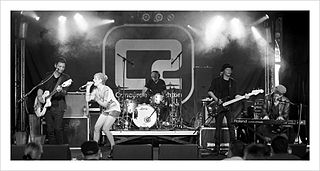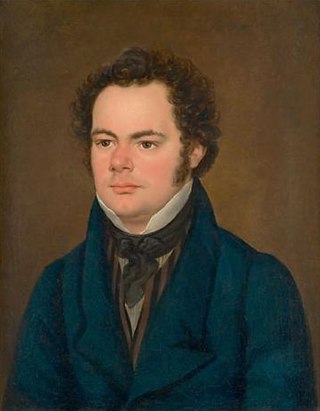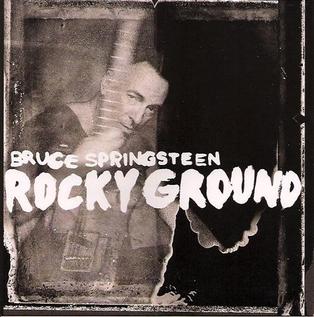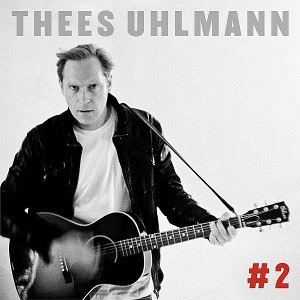
Bruce Frederick Joseph Springsteen is an American rock singer, songwriter and guitarist. Nicknamed "The Boss", he has released 21 studio albums during a career spanning six decades, most of which feature his backing band, the E Street Band. Springsteen is an originator of heartland rock, a genre combining mainstream rock music with poetic and socially conscious lyrics that tell a narrative about working-class American life. He is known for his descriptive lyrics and energetic concerts, with performances that can last for more than four hours.

"Rosalita (Come Out Tonight)" is a 1973 song by Bruce Springsteen, from his The Wild, the Innocent & the E Street Shuffle album, and is especially famed as a concert number for Springsteen and The E Street Band. The song, which clocks in at just over seven minutes, is a story of forbidden love between the singer and the titular Rosalita, whose parents disapprove of his life in a rock and roll band. It is included on the compilation albums The Essential Bruce Springsteen and Bruce Springsteen & The E Street Band Greatest Hits. In 2021, Rolling Stone ranked it the 446th greatest song of all time on their updated 500 Greatest Songs of All Time list.

Klee is a German pop band from Cologne. Named after German painter Paul Klee, the band was formed in 2002 by singer Suzie Kerstgens and musicians Sten Servaes and Tom Deininger. Klee's brand of pop music incorporates electronic as well as acoustic sounds and, in more recent years, the band has embraced chanson and schlager. Four of Klee's albums have entered the top 30 of the German albums chart.

Slime, a German punk rock band founded in Hamburg in 1979, became a defining band in the 1980s German punk scene, and is the most widely recognized example of the musical style Deutschpunk.

Böhse Onkelz, sensational spelling of böse Onkels is a German rock band formed in Frankfurt in 1980. The band reunited in 2014. Despite mass-media criticism concerning their past as skinheads, several of their later records topped the German album charts. E.I.N.S. was their most successful album, with over 510,000 copies sold.
"Thunder Road" is a 1975 song, written and recorded by Bruce Springsteen, that became the opening track on his breakthrough album Born to Run. One of the artist's most popular songs, while never released as a single, "Thunder Road" is ranked as one of Springsteen's greatest songs and one of the top rock songs in history. It is number 111 on Rolling Stone's 500 Greatest Songs of All Time list, and also the 103rd-best ranked song on critics' all-time lists according to Acclaimed Music.

Kettcar is an indie rock music band based in Hamburg, Germany. The band has released five studio albums so far. The band released their fourth album, Zwischen den Runden, in 2012. Their fifth album, Ich vs. Wir, was released in October 2017. The band name is derived from the Kettcar, a riding toy produced by Kettler since 1962.

Daniel Ebel, better known as Dendemann, is a German rapper. He is known for his rough voice and his witty, wordplay-filled lyrics in which he mostly tells stories from everyday life.

"The Rising" is the title track on Bruce Springsteen's 12th studio album The Rising, and was released as a single in 2002. Springsteen wrote the song in reaction to the September 11, 2001 attacks on New York City. It gained critical praise and earned Grammy Awards for Best Rock Song and Best Male Rock Vocal Performance, as well as a nomination for Song of the Year. Rolling Stone named it the 35th best song of the decade, and VH1 placed it 81st on its list of the "100 Greatest Songs of the '00s". It was used as the first credit song to end the broadcast of the 2002 World Series on Fox Sports.
"Long Walk Home" is a song written and performed by Bruce Springsteen. It first appeared on his Sessions Band Tour of that year, in folk guise in the European leg of the tour in London for one performance only. Reworked with different and shorter lyrics, it was recorded by Springsteen and the E Street Band as a mid-tempo rocker and released on the 2007 Springsteen album Magic. This song was #8 on Rolling Stone's list of the 100 Best Songs of 2007. The song was released as a promo single. Springsteen had said that it was a song about how he felt in the times of George W. Bush. "In that particular song a guy comes back to his town and recognizes nothing and is recognized by nothing," Springsteen told The New York Times' A. O. Scott. "The singer in 'Long Walk Home,' that's his experience. His world has changed. The things that he thought he knew, the people who he thought he knew, whose ideals he had something in common with, are like strangers. The world that he knew feels totally alien. I think that's what's happened in this country in the past six years."

"Tunnel of Love" is the title song by Bruce Springsteen from his 1987 Tunnel of Love album. It was released as the second single from the album, reaching number nine on the Billboard Hot 100 chart. Like the first single from the album, "Brilliant Disguise", "Tunnel of Love" reached number one on the Mainstream Rock Tracks chart and reached the top twenty in Canada peaking at number seventeen. The music video received five MTV Video Music Awards nominations, including Video of the Year and Best Male Video.

Thees Uhlmann is a German musician and author. He is a founding member of the indie-pop band Tomte and also writes for the magazines Intro, Visions, Spex and Musikexpress.

Grand Hotel van Cleef is an independent record label headquartered in Hamburg, Germany.
Lukas Loules is a German songwriter, composer, music producer, and singer. In 2014, he married Katerina Loules and changed his surname from Hilbert to Loules.

Der Zwerg is a lied for voice and piano by Franz Schubert, written in the mid-1820s on a text by Matthäus von Collin. The poem is in terza rima. In Otto Erich Deutsch's catalogue of Schubert's works, it is Op. 22, No. 1, D. 771.

"Rocky Ground" is a song written and recorded by American musician Bruce Springsteen. It is the second single from his album Wrecking Ball and was released exclusively in select stores as a limited-edition 7-inch 45-rpm vinyl single as a part of Record Store Day on April 21, 2012.

#2 is the second solo record from German singer-songwriter Thees Uhlmann released on Uhlmann's own Grand Hotel van Cleef Records. The album was produced by Tobian Kuhn. Of the album's production, Uhlmann stated that he often would write the first lyrics of a song and wait for Kuhn's reaction. Once satisfied, they would continue the rest of the piece. The album was a critical and commercial success in Uhlmann's native Germany, reaching #2 on the German Albums Chart.

Thees Uhlmann is the eponymous debut record for former Tomte frontman Thees Uhlmann released through Uhlmann's own Grand Hotel van Cleef label on August 26, 2011. The record was commercially well-received, charting within the Top 5 in Germany and the Top 20 in Austria. The album did not chart in Switzerland. The album consists mostly of sentimental narratives composed on an acoustic guitar. The music was influenced by American rock-singer Bruce Springsteen. German rapper Casper features on & Jay-Z singt uns ein Lied and received credit for writing his own verse. Otherwise, all lyrics, which were written by Uhlmann, describe a search for stability and a place to call home. After the album's release, Uhlmann, a native of Hemmoor, left Berlin and moved back to a more rural environment. This frustration is highlighted throughout the record.

"Will to Love" is a song written by Neil Young that was first released on his 1977 album American Stars 'N Bars. A promotional single of "Will to Love" was released, backed with a live performance of "Cortez the Killer."
"Herzlich tut mich verlangen" is a German hymn, with lyrics written in 1599 by Christoph Knoll, with a melody adapted from a secular song by Hans Leo Hassler. It is a prayer for a blessed death, beginning "Herzlich tut mich verlangen nach einem sel'gen End". Its hymn tune, Zahn No. 5385a, was later also used for Paul Gerhardt's "Befiehl du deine Wege" and "O Haupt voll Blut und Wunden".
















